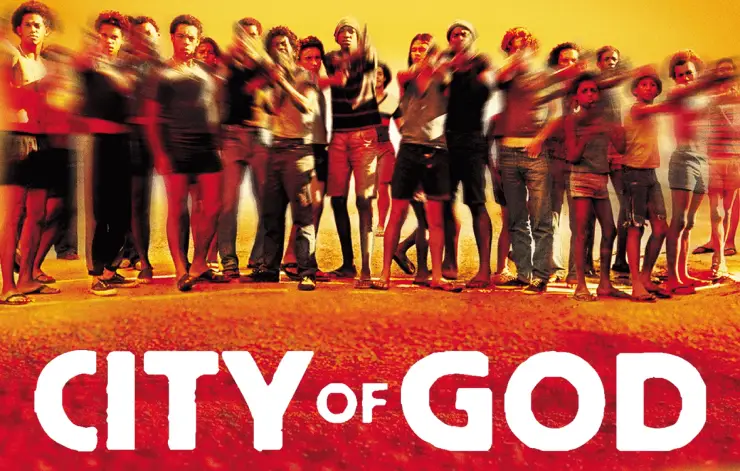“City of God,” the Brazilian crime drama directed by Fernando Meirelles in 2002. [Crime, Drama]
Stars: Alexandre Rodrigues, Leandro Firmino, Matheus Nachtergaele, Phellipe Haagensen.
“City of God”: A Gritty Tale of Survival and Desperation
Fernando Meirelles’ “City of God” stands as a powerful and gritty portrayal of life in the favelas of Rio de Janeiro, capturing the brutal realities of crime, poverty, and the struggle for survival.
Vivid Depiction of Favela Life
The film unfolds in the notorious Cidade de Deus (City of God) favela, depicting the lives of its residents amidst the rise of organized crime. Through the eyes of Rocket, a young aspiring photographer, and the story of the young hoodlum, Li’l Zé, the film presents a visceral and unflinching portrayal of the cycle of violence and poverty.
Raw and Authentic Performances
The film showcases raw and authentic performances from its ensemble cast, many of whom were actual residents of the favelas. Their portrayal of the harsh realities, the moral dilemmas faced, and the desperation to survive amidst the chaos and violence of the slums adds depth and authenticity to the narrative.
Narrative Complexity and Social Commentary
“City of God” weaves a complex narrative that spans decades, exploring themes of power, corruption, and the impact of societal neglect on marginalized communities. It offers a stark social commentary on the systemic issues that perpetuate violence and poverty in disenfranchised neighborhoods.
Visually Captivating Direction
Fernando Meirelles’ direction and the frenetic editing style infuse the film with energy and urgency, capturing the intensity and chaos of life in the favelas. The use of vibrant colors and dynamic camerawork adds to the immersive experience, transporting audiences into the heart of Cidade de Deus.
Critical Acclaim and Cultural Impact
“City of God” received widespread critical acclaim for its compelling storytelling, powerful performances, and unflinching portrayal of harsh realities. Its impact extended beyond Brazilian cinema, earning international recognition and sparking discussions about socio-economic disparities and urban violence.
Legacy and Enduring Relevance
The film’s legacy lies in its ability to shed light on marginalized communities and their struggles, prompting discussions about the systemic issues faced by impoverished neighborhoods worldwide. Its unfiltered depiction of the human cost of crime and poverty ensures its relevance as a stark reminder of social inequities.
Conclusion
“City of God” stands as a searing and unforgettable cinematic journey, offering a poignant and unvarnished look at life within the confines of a violent and impoverished community. Its impact on cinema and its portrayal of the harsh realities faced by residents of favelas cement its place as a significant and powerful piece of storytelling.

